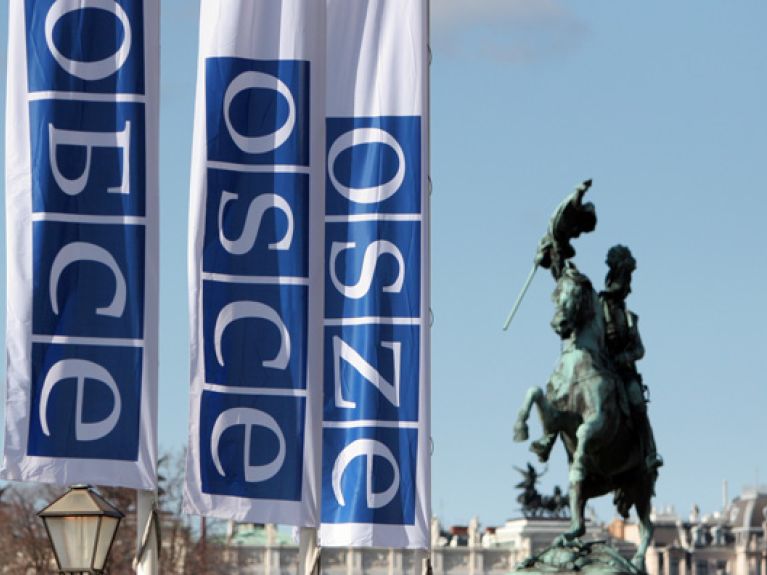Germany takes over OSCE Chairmanship
Germany sets itself ambitious goals for its Chairmanship of the Organization for Security and Co-operation in Europe (OSCE).

Germany took over the Chairmanship of the Organization for Security and Co-operation in Europe (OSCE) on 1 January 2016, the second time it has headed the world’s largest regional security organization since 1991. Foreign Minister Steinmeier is the organization’s “Chairperson-in-Office”, while Gernot Erler is the Federal Government’s Special Representative for Germany’s OSCE Chairmanship in 2016. The OSCE Secretariat headed by Lamberto Zannier in Vienna and the so-called OSCE Troika, comprising the present, previous (Serbia) and incoming (Austria) Chairmanships, will support Germany in the execution of its Chairmanship.
The Organization for Security and Co-operation in Europe came about as a result of the 1975 Conference on Security and Co-operation in Europe (CSCE), which concluded with the signing of the Helsinki Final Act. The CSCE was officially renamed OSCE on 1 January 1995. With 57 participating States, the OSCE is the only security-policy organization in which all European countries, the successor states to the Soviet Union, the USA, Canada and Mongolia are represented. Mongolia became the 57th participating State on 20 November 2012.
Foreign Minister Frank-Walter Steinmeier will present the details of the Chairmanship programme to the 57 participating States in Vienna on 14 January 2016. Germany’s Chairmanship will focus on the following areas:
- continued crisis and conflict management in and around Ukraine and with respect to the other unresolved conflicts in the OSCE area;
- strengthening the OSCE’s capabilities throughout the entire “conflict cycle”, i.e. early warning, conflict prevention, crisis management and post-conflict rehabilitation;
- strengthening the OSCE as a platform for dialogue, for example on questions of pan-European security, confidence- and security-building measures and defence against common threats;
- sustainable promotion of connectivity and good governance in the OSCE area;
- particular focus on the human dimension to safeguard joint commitments regarding human rights and fundamental freedoms.
Prior to assuming the Chairmanship, Foreign Minister Steinmeier said Germany wanted to durably strengthen the OSCE and its tradition of an equal dialogue among all participating States. This was the only way, he said, to rebuild lost trust and restore security on the European continent in the long term. This was all the truer against the background of the conflict in Ukraine, in which the OSCE had proved its outstanding importance and indispensability.
Presentation of the German Chairmanship programme by Foreign Minister Steinmeier to the OSCE Permanent Council in Vienna on 14 January 2016.

